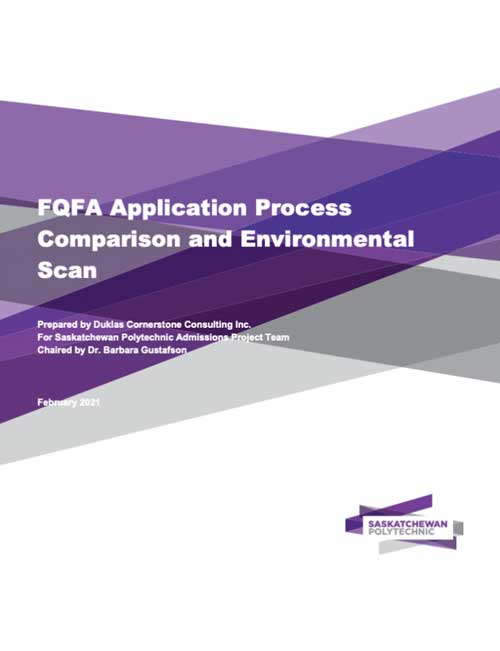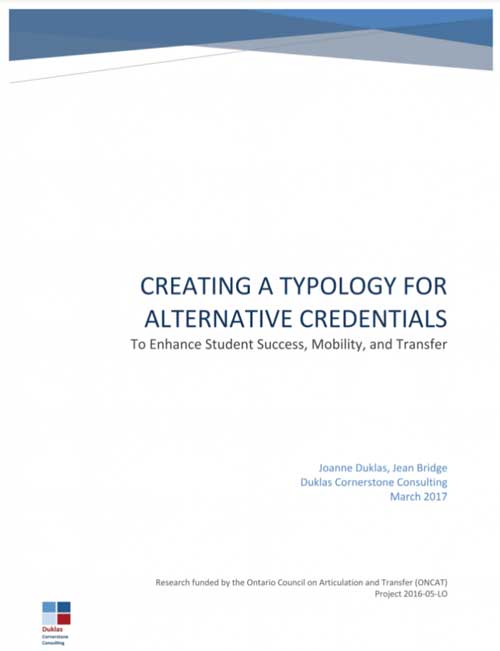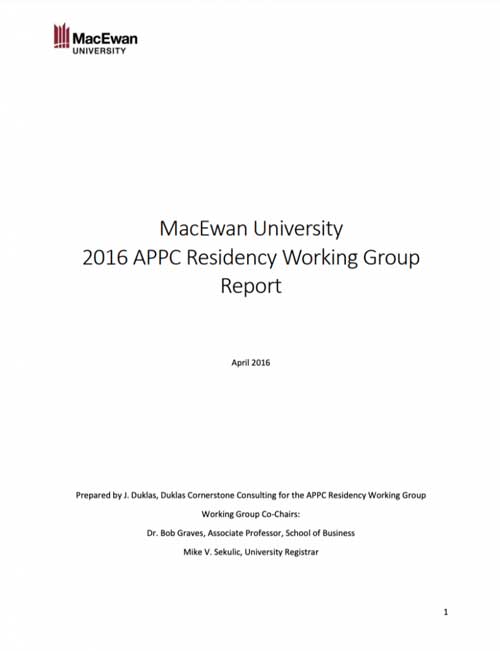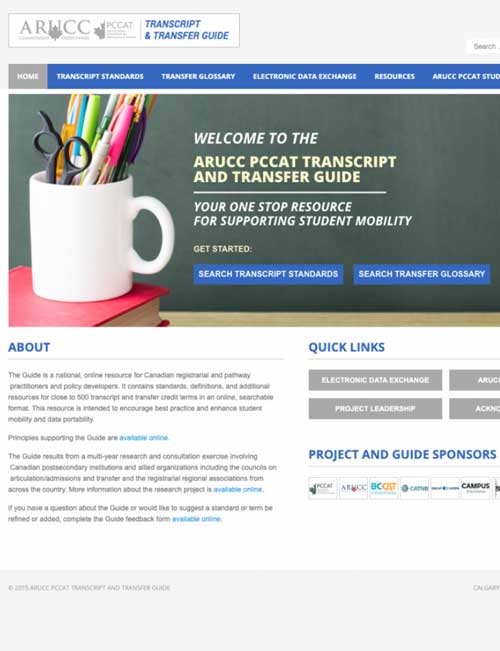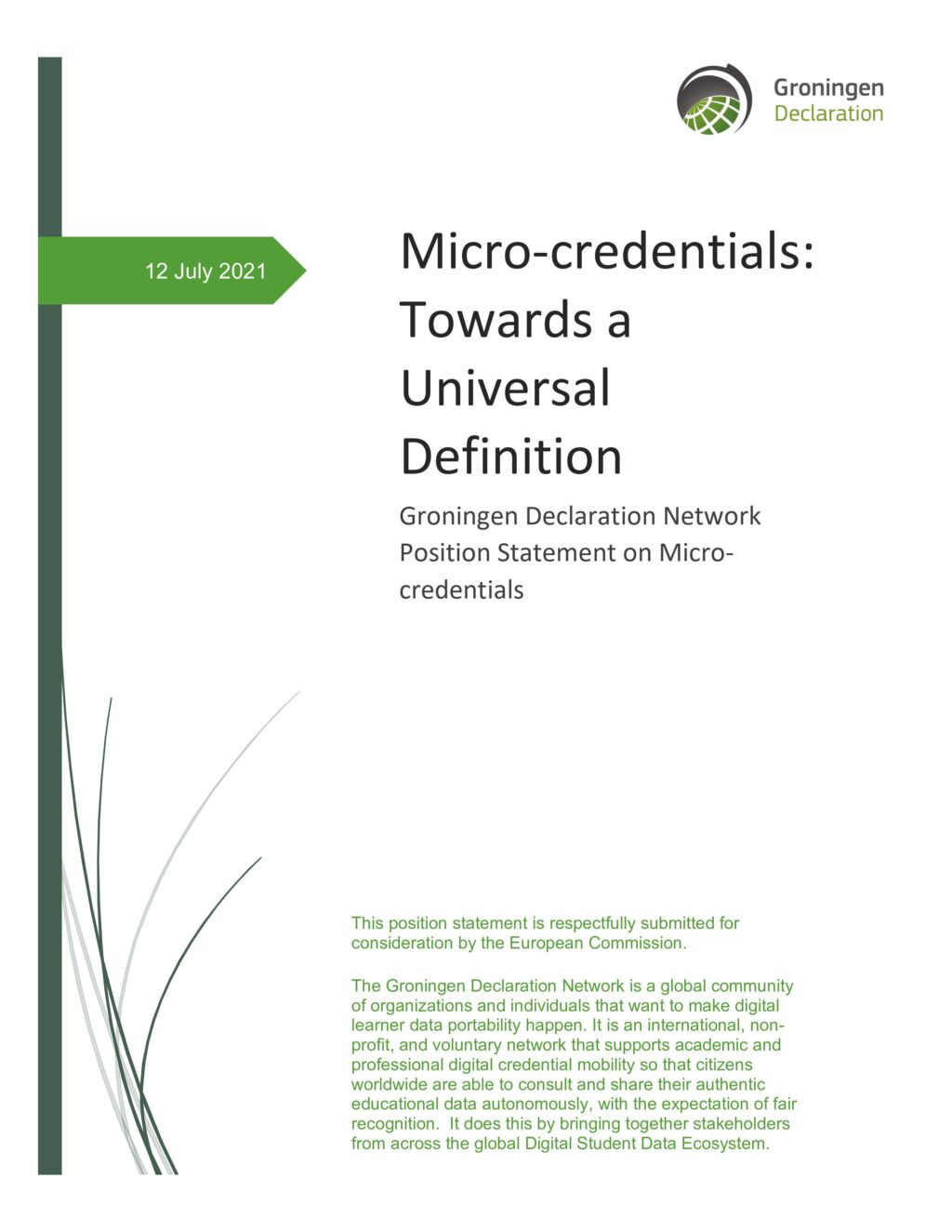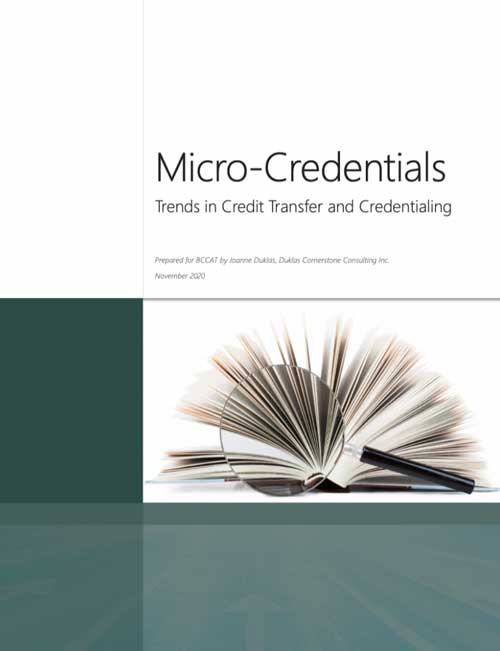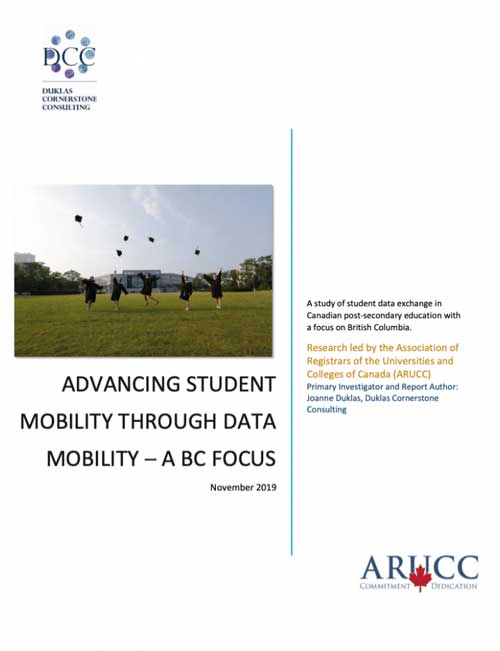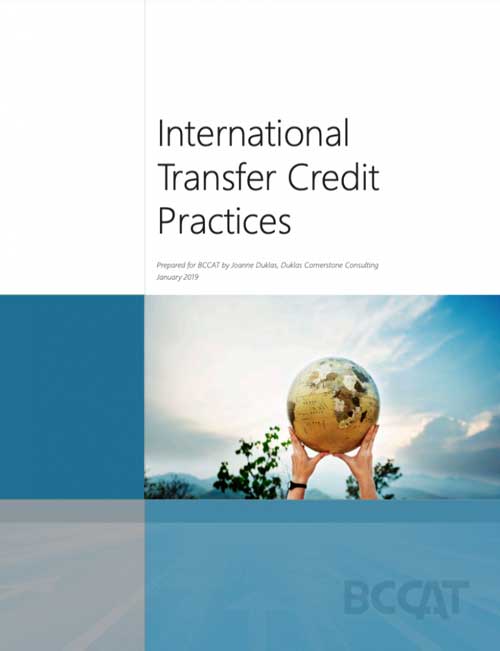Evidenced based research is the hallmark of any change process. Duklas Cornerstone Consulting Inc. provides post-secondary institutions, organizations and government leading edge expertise.
First Qualified, First Admitted Application Process Comparison and Environmental Scan
DCC Inc. was contracted by Saskatchewan Polytechnic to conduct a review of its First Qualified, First Admitted admission policy. Working closely with the Vice President Academic area and a subcommittee of their academic council, DCC Inc. reviewed institutional and national policies and practices, conducted a national survey, and developed a series of recommendations to guide Saskatchewan Polytechnic through an intensive review process. This final report summarizes the survey results and findings. Key recommendations are provided. The results of this work were gifted to the Association of Registrars of the Universities and Colleges of Canada (ARUCC) to support community efforts to improve policies practices and standards for learners.
Creating a Typology for Alternative Credentials
To support advancement of new ways to position summative learning, this study on alternative credentials sought to identify (i) a credentialing typology for documenting completed learning outcome achievements through a program of study or an institution and (ii) whether these alternative and emerging credentials improve student success, transfer, and mobility.
To achieve these goals, the researchers explored the following four questions:
1. Which postsecondary institutions within North America serve as exemplars to help identify a credentialing typology for Canadian institutions that ties curricular and co-curricular learning within the same schema?
2. What are the defining characteristics of the credentialing types particularly related to creating expanded or alternative credentials containing comprehensive information regarding summative learning and achievement of learning outcomes at the individual student level? What system-wide and or institutional level supports were cultivated to ensure success?
3. What are the defining characteristics of a credentialing typology for Canadian institutions?
4. Does demonstrable evidence exist to suggest that these types of credentialing initiatives facilitate student success, mobility, and transfer?
To achieve these goals, the researchers explored the following four questions:
1. Which postsecondary institutions within North America serve as exemplars to help identify a credentialing typology for Canadian institutions that ties curricular and co-curricular learning within the same schema?
2. What are the defining characteristics of the credentialing types particularly related to creating expanded or alternative credentials containing comprehensive information regarding summative learning and achievement of learning outcomes at the individual student level? What system-wide and or institutional level supports were cultivated to ensure success?
3. What are the defining characteristics of a credentialing typology for Canadian institutions?
4. Does demonstrable evidence exist to suggest that these types of credentialing initiatives facilitate student success, mobility, and transfer?
A National Residency Study for MacEwan University, Alberta
This report summarizes the findings of a MacEwan University study of residency requirements across Canada. Recent trends in higher education such as increasing pathway and partnership development, transfer opportunities both within and across institutions and provincial boundaries, and student mobility are requiring institutions to carefully re-examine academic regulations such as residency. These trends are coupled with a growing focus on learning outcomes assessment and flexible approaches to learning which separately and together suggest a strategic lens on student success and its relationship to residency requirements is needed. This reality is compelling institutions more so than ever to revisit academic regulations, benchmark long standing practices and policies, and gather appropriate evidence to inform principled discourse.
ARUCC PCCAT Transcript & Transfer Guide
A first of its kind in Canada, this online resource provides a comprehensive compendium of standards and resources to support transcription and transfer practices in Canada. Funded by nine provincial and national bodies, the guide provides a searchable database of transfer nomenclature, detailed transcript comparisons and guidance, introductory information on data exchange, and several research resources.
Groningen Declaration Network Position Statement on Micro-credentials
The Groningen Declaration Network's position statement for the European Commission's definition for micro-credentials, co-edited by Joanne Duklas, amplifies the importance of ensuring learner autonomy, trust, a focus on learning outcomes, interoperability, and portability when considering micro-credentials. It was submitted by the GDN in response to the Commission's invitation to participate in their consultation process for establishing a European definition for micro-credentials.
Research Report on Micro-Credentials
Micro-Credentials Trends in Credit Transfer and Credentialing is a peer reviewed study, providing insights into current micro-credentialing practices, motivations, and perspectives at Canadian higher education institutions and beyond. It focuses on the potential of using micro-credentials to advance admission and transfer into colleges and universities and provides a series of findings from a national survey of 80+ Canadian institutions.
Advancing Student Mobility through Data Mobility – A BC Focus
Advancing Student Mobility through Data Mobility – A BC Focus represents the findings of a national research project that spanned from April 2018 to September 2019. The research report identifies the practices and potential opportunities for improving transfer and mobility by enhancing digitization and exchange of students’ official academic credentials and transcripts.
A national study on international transfer credit practices
International assessment of academic documents by post-secondary institutions and other bodies represents a complex field guided by quality assurance frameworks, formal conventions, and best practice. This peer reviewed research study sought to illuminate this complexity by examining current practices, constraints, perspectives, and possibilities for transfer and exchange assessment informed by a cross-Canada and international environmental scan.
- 1
- 2
